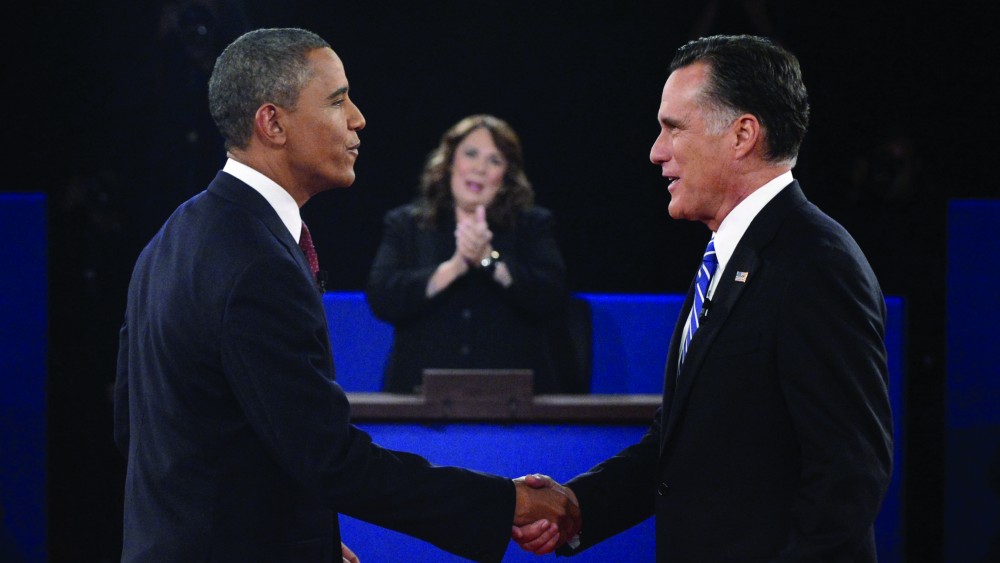Why you should watch.

Courtesy / Getty Images
Oct 17, 2012
I remember the first Presidential debate I ever saw. It was October 1992, and I was a freshman at Michigan State University. President George H. W. Bush, Bill Clinton, and Ross Perot met face-to-face for the debate in East Lansing, moderated by Jim Lehrer.
The Wharton Center was filled to capacity and the debate was televised worldwide.
There were surprisingly few student tickets handed out for that event, and I was fortunate to have one. All three candidates spoke with such certainty and conviction. The atmosphere in the building was electric. After the debate, I was interviewed by one of the Detroit newspapers and asked to “grade” the candidates on their performance.
I was an obvious choice to share a “student’s perspective.” I was a recent high school graduate with years of varsity debate experience and multiple championship trophies. I was a first-time voter, and now a member of the debate team at MSU.
But I struggled with that interview. How could I give one grade to each candidate when there were so many different dimensions of each performance? President Bush had a strong opening statement, but struggled to answer questions on-point. Ross Perot was notably confident, yet failed to clearly articulate how his ideologies would translate to policy in the White House. Bill Clinton spoke with his now infamous swagger and personality, but at times, appeared annoyed about having to share the stage with his opponents.
Perhaps inspired by the event, and a desire to understand my discomfort, I went on to study presidential politics and political communication as a career. Since 1992, I’ve seen quite a few political debates, coached a number of championship debaters and consulted on political campaigns. I’ve decided that watching a debate isn’t really about who “wins” or “loses” (even if that is the question the press likes best).
Watching the debates is important because it is an experience that connects us to our shared lives as Americans. In our 24-7 news climate, where we are all exposed to news and information all the time, there are very few moments during the election when voters from both sides of the aisle come together with independents and undecideds for a shared event. Usually, we engage in selective exposure, limiting our interactions to people who already believe and feel the same way we do.
The debates give us a reference point to start conversations about politics, the candidates, policy, and our society. The debates help us understand and recognize the issues that are important to other Americans, so that we can better think through how our vote might impact our community.
So while one letter grade may not truly capture the complexity of what happens in a 90-minute debate, it can light the spark of larger discussions about politics. And those are discussions we voters need to have more often.
Danielle Leek, PhD, is an Associate Professor at Grand Valley State University’s School of Communications






















